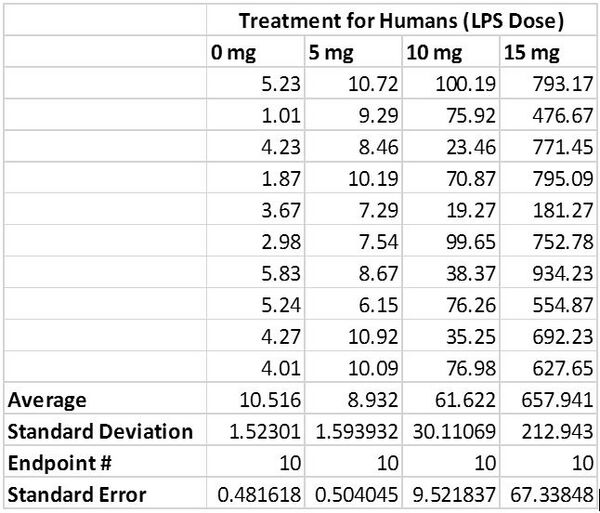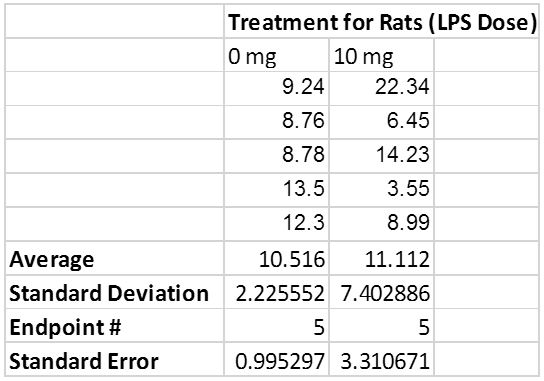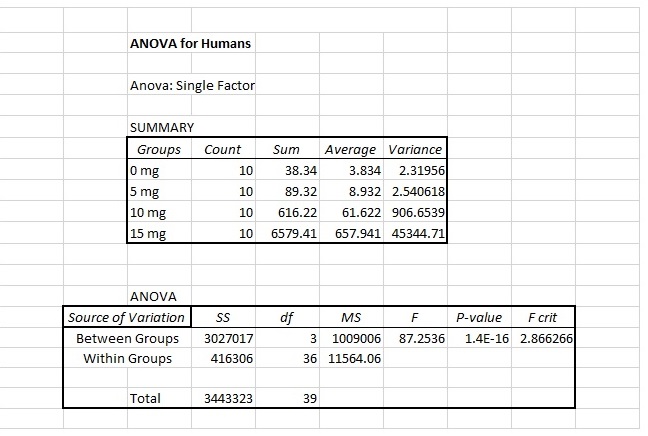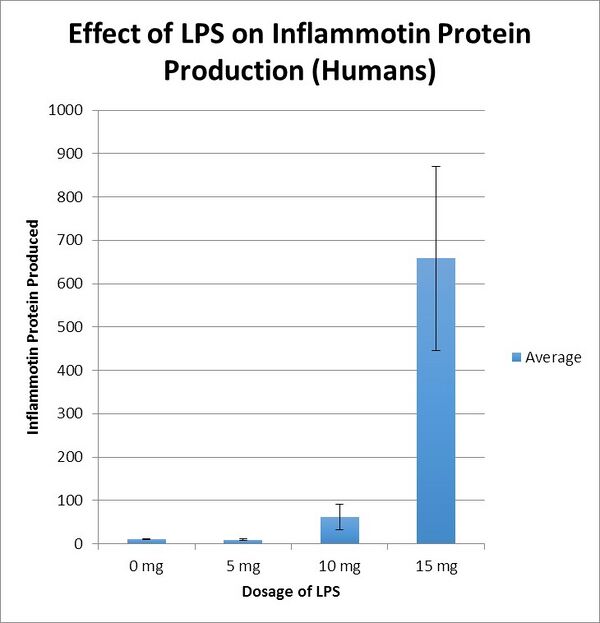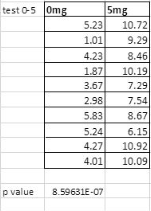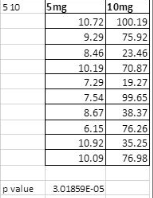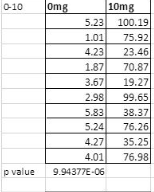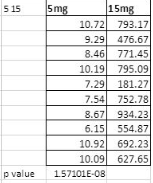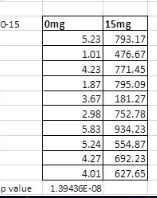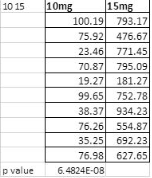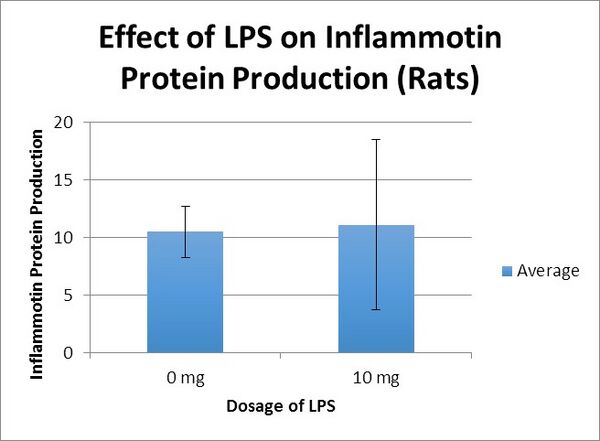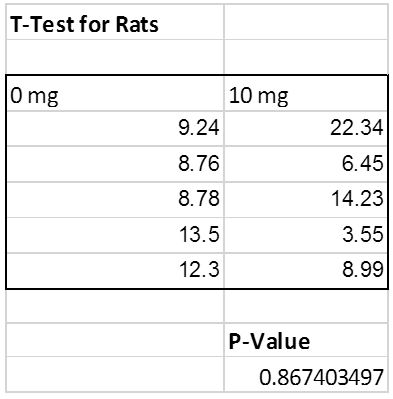BME100 f2014:Group5 L2
| Home People Lab Write-Up 1 | Lab Write-Up 2 | Lab Write-Up 3 Lab Write-Up 4 | Lab Write-Up 5 | Lab Write-Up 6 Course Logistics For Instructors Photos Wiki Editing Help | |||||||
|
OUR TEAM
LAB 2 WRITE-UPDescriptive StatisticsExperiment 1 - Humans Experiment 2 - Rats
ResultsExperiment 1
AnalysisThe p-value in the human study shows a significant difference in inflammotin protein produced. The p-value shows no significant difference in inflammotin protein produced.
Summary/DiscussionAfter analyzing the data, it was found that the p-value of the ANOVA test in the human study showed a significant difference. Unlike the human study, the t-test from the rats showed a p-value with no significant difference. Because of the significant difference in the human study, it can be concluded that implementation of lipopolysaccharide in elderly people can increase the inflammatory protein inflammotin. Since the p-value from the rat study shows no significant difference, it can be concluded that lipopolysaccharide does not increase inflammation within rats. This does not support the original hypothesis of lipopolysaccharide increasing inflammation in rats. Although results from the two tests are different, the human study proves that lipopolysaccharide does increase inflammotin. |
|||||||

